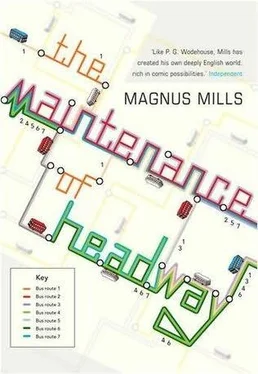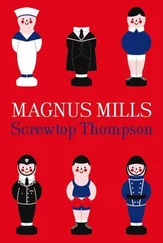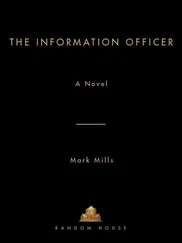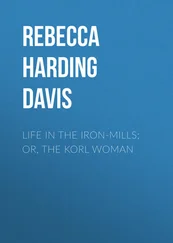Sometimes during the rush there would be holdups at places where traffic was particularly congested. On these occasions inspectors would suddenly pop up and curtail certain journeys, much to the disdain of the passengers. The travelling public seemed to think the purpose of curtailment was to give the driver a rest at their expense; the real reason, in fact, was to turn the bus round and send it back in the opposite direction.
So it was the following day that Greeves intercepted me at the cross. I was just about to depart when he appeared at the side of the road and flagged me down.
“Right,” he said. “I’m going to adjust you and I’ll tell you why.”
Then came the usual explanation about how there were too many buses down the outpost and not enough up the cross.
“Turn round at the common will you?” said Greeves. “I need you back here as quick as possible.”
He wrote down the details on my log card and sent me on my way.
Now, as everyone knows, you can lead a horse to water but you can’t make him drink. Another thing you can’t make him do is read what it says on the front of a bus. I altered my destination blind so that it clearly indicated I was only going as far as the common. All the same, I knew that only a few of my passengers would bother to read what it said. The rest would take no notice at all; instead they would be sinking back into oblivion after a hard day’s work. I firmly believed that if a bus was destined for HELL AND DAMNATION the people would still blithely climb aboard. Equally, they would moan and groan if they were kicked off before they expected to be. Which was indeed their fate this evening. As predicted, they bleated like abandoned sheep when I deposited them at the common. Yet it was hardly my fault.
“It couldn’t be helped,” affirmed Edward when I met him later at the garage. “You were only obeying orders.”
“Why don’t they ever read what it says on the front?” I demanded.
“You must forgive them their frailty,” he said.
At this time of the evening the garage was very quiet. Edward had finished work for the day and only came up the canteen to keep me company. The place was practically deserted; just one or two drivers on late turns sitting around waiting to complete their ‘second halves’. It was entirely different from the early morning period when the ‘run-out’ was in full swing. Then the shed was packed with buses getting ready to leave; engines were running; drivers were marching round with watering cans; inspectors were examining their schedules books and making sure headway was being maintained. Any outsider who happened to wander in would probably assume the garage was a hive of efficiency. In truth, of course, it wasn’t. The officials were more likely than not to drop a spanner in the works, despite their best intentions. Greeves happened to have got it right during this evening’s rush, but I was convinced it was only a matter of luck.
“I wonder if he says that to his wife at bedtime,” remarked Edward.
“Says what?” I asked.
“‘I’m going to adjust you and I’ll tell you why’.”
§
After my break I resumed work again. This involved taking over a bus on the road from another driver. I waited in the darkness opposite the garage. It was now almost half past nine and the traffic was at last beginning to settle down. At precisely nine thirty-two I heard the tortured engine of an approaching bus, and a moment later Clarence came roaring up. We nodded at each other, and he slipped out of the driving seat.
“Bus is OK,” he said.
Clarence originated from a far away tropical island. He was a deeply wounded man. Hidden somewhere on his person was a bullet hole which he’d incurred years before during pre-independence rioting.
“Nothing to do with me,” he always insisted. “I was in the public library when the riots kicked off.”
This bullet hole lent Clarence a certain element of coolness unmatched by other bus drivers. No one messed with Clarence. He was one of the few drivers who actually preferred to do late-night duties; in fact, I had never seen him during the day.
“I like to start work just when it’s turning duskish,” he once told me. “I get out of bed when I want.”
Clarence owned about seventeen hats, caps and berets (plus a bandanna), all of which suited him perfectly. He wore a different one every evening, according to his mood. Likewise his collection of shirts, which were varied and many; the official uniform was an optional extra. Rumour had it that sometimes, after midnight, Clarence took his bus along roads other than those specified by the Board of Transport, just for a change. This was the bus drivers’ form of jamming. Clarence was undoubtedly his own man.
“I’ll see you later,” he said, ambling into the moonlight.
When I was ensconced behind the wheel I reflected on the very different ‘tone’ of bus driving at this late hour. There was no longer any rushing about: instead, buses roamed placidly through the night. Fridays and Saturdays were exceptions, of course, when the bejewelled thoroughfare and its environs were thronged with revellers who didn’t go home until the early morning. For the rest of the week, though, a certain calm lay over the proceedings. Desultory buses appeared as travelling beacons of light in the surrounding blackness. On some journeys there were only a dozen passengers; on others there were none at all. To some observers the sight of empty buses patrolling deserted roads may have seemed to be a pointless waste of resources; but to others this was an essential element of public transport. In Edward’s words, “The bus should always be there whether the people need it or not.”
Buses, he suggested, were similar to the post horses of olden days: constantly ready and waiting on the assumption they may eventually be required. (Indeed, the bus went a step further than the post horse because it made the journey even when nobody was travelling.)
§
Gradually the evening went by. I drove up to the cross, back to the southern outpost, and then up to the cross again. As the hours passed, buses began to drop out of circulation, one by one, and return to the garage, until finally there were only six vehicles going round and round. Six buses to serve the entire route! The headway was now lengthened to fifteen minutes between each bus. Clarence had completed his break and was back on the road again. There was another late-night specialist called Fabian who was also out there somewhere. The remaining drivers were me, Cedric, Dean, and a new recruit whose name I didn’t know.
One other difference about these evening duties was the fact that after eight o’clock we were supervised not by roadside officials but by means of radio transmissions. Occasionally a laconic voice would call up and enquire about a bus’s position or state of progress. This was usually at weekends when city centre traffic jams could occur even at midnight; in these cases the controller would issue appropriate instructions to any bus that may have been held up. Most of the time, however, the radio stayed quiet. Buses ran unhindered through the empty streets keeping roughly to schedule, and drivers didn’t need to worry about inspectors lurking in the shadows.
With these thoughts in mind I completed my final journey to the southern outpost, arriving five minutes early. There, to my surprise, I saw Mick Wilson standing by the side of the road.
“Evening, Mick,” I said, through the window. “Didn’t expect to see you here.”
“Evening, driver,” he replied.
“I do have a name you know.”
Mick ignored my comment and stood examining his schedules book by the light of an electric torch.
“You’re five minutes early,” he said at length. “Why’s that?”
Читать дальше












